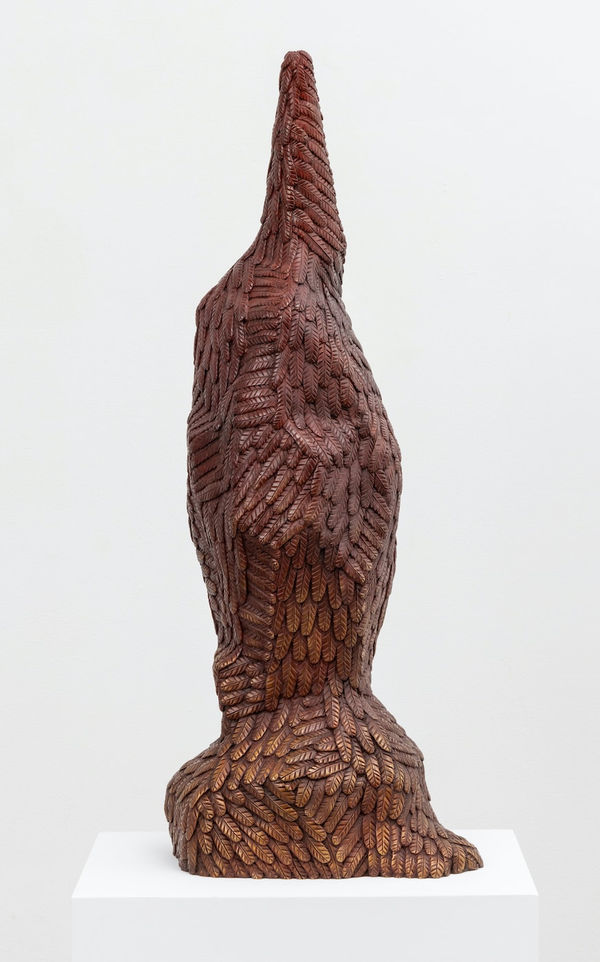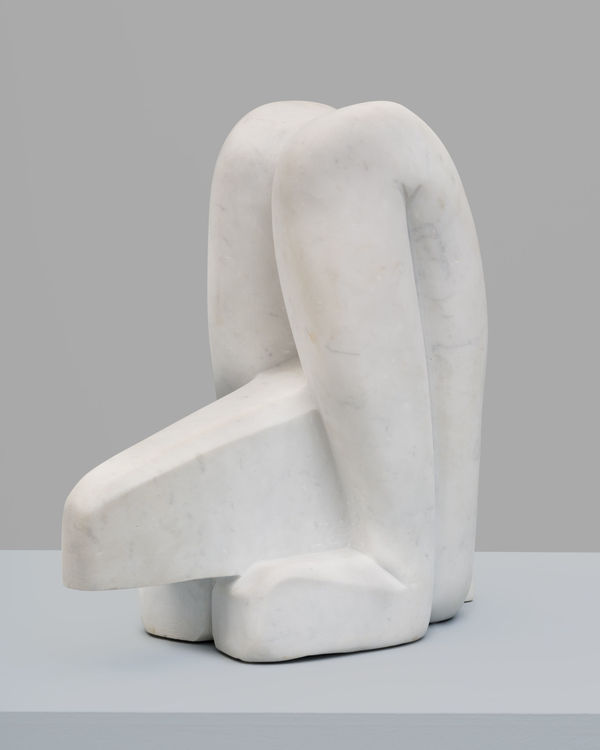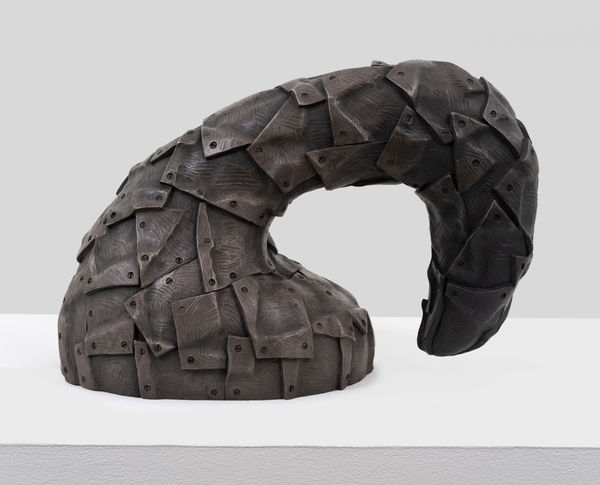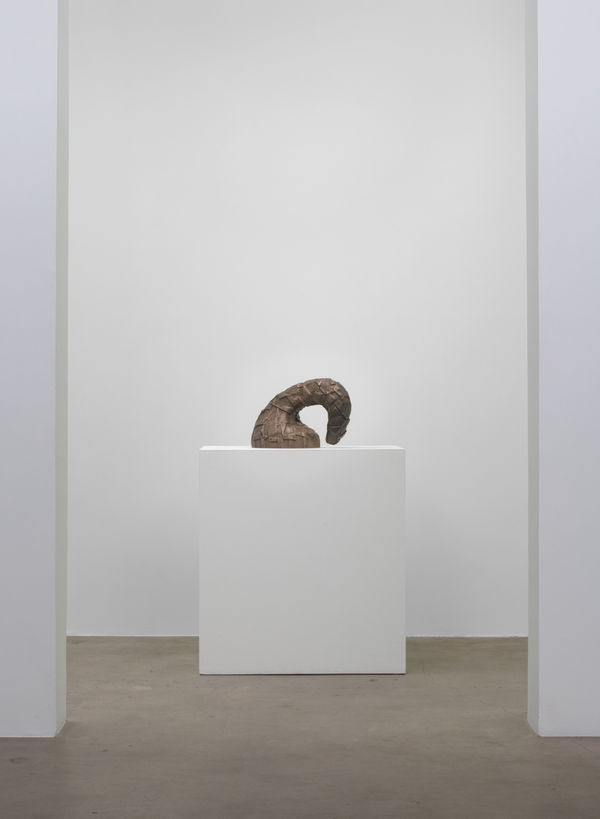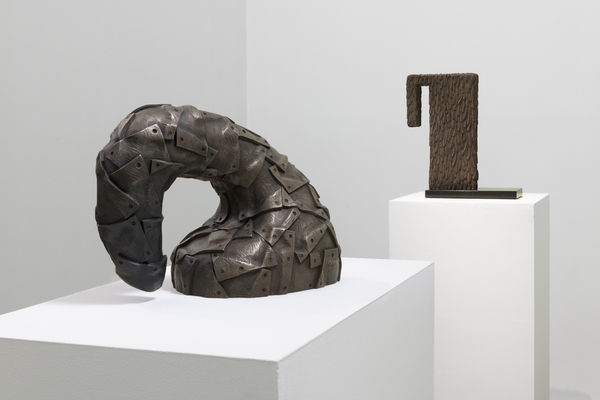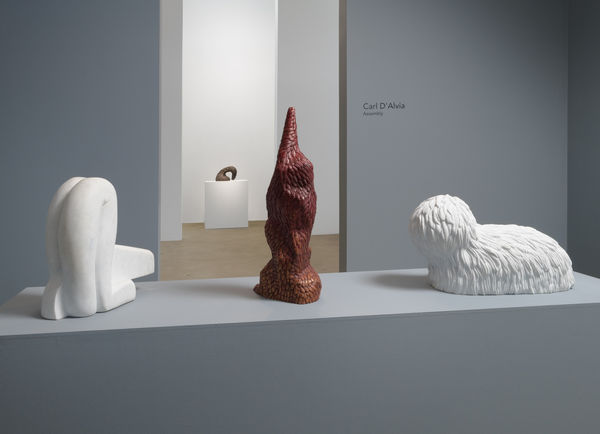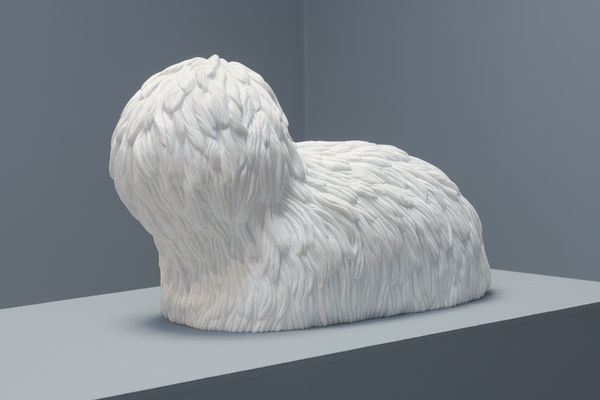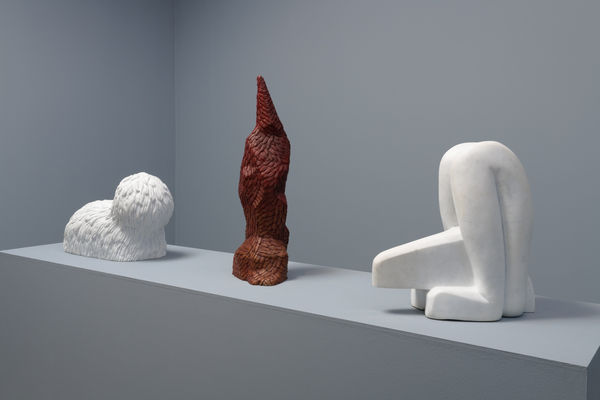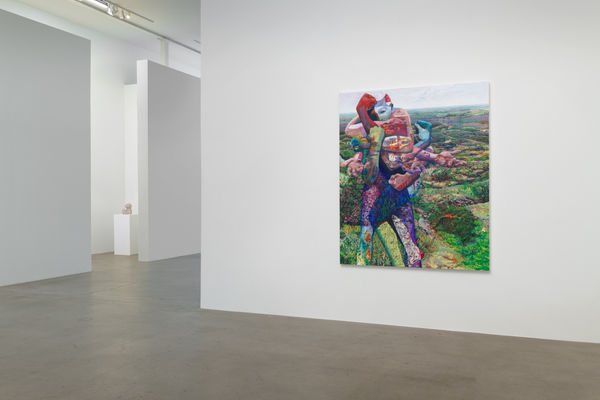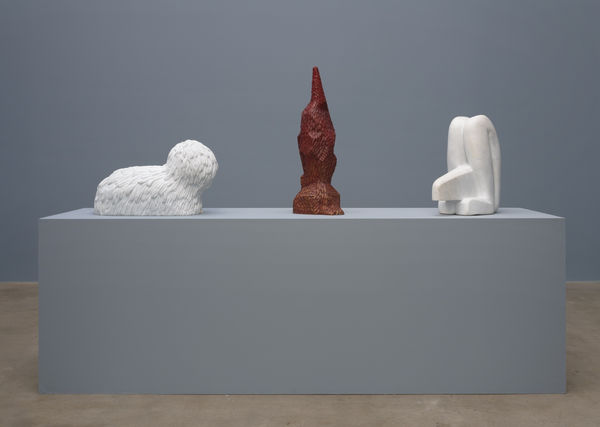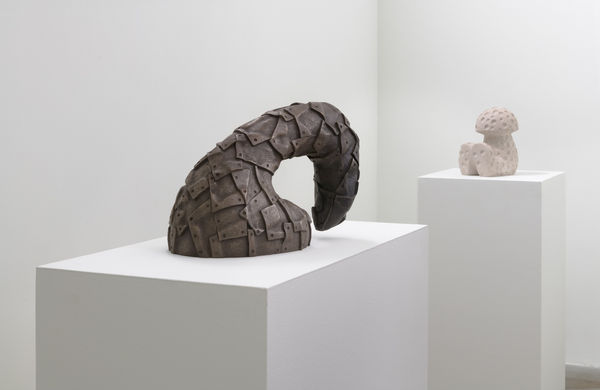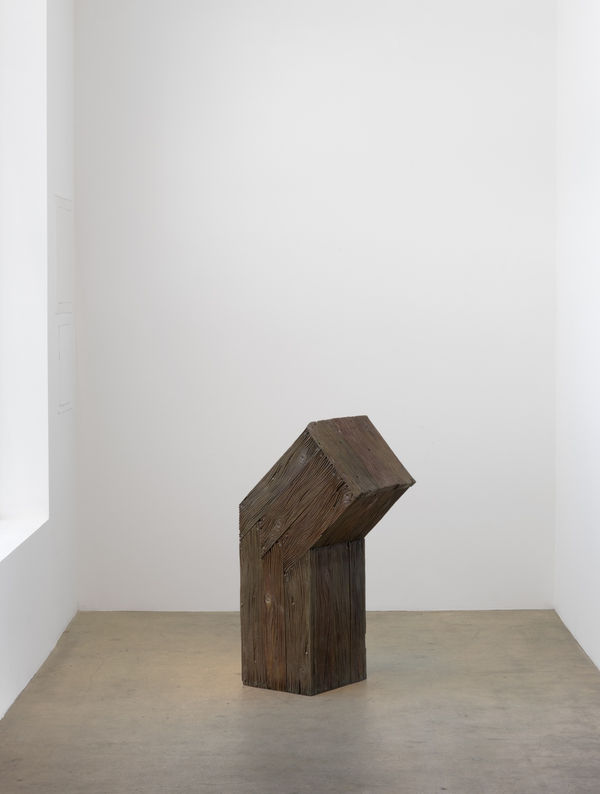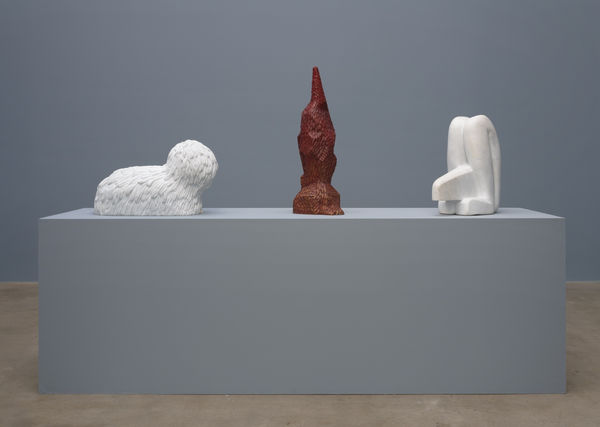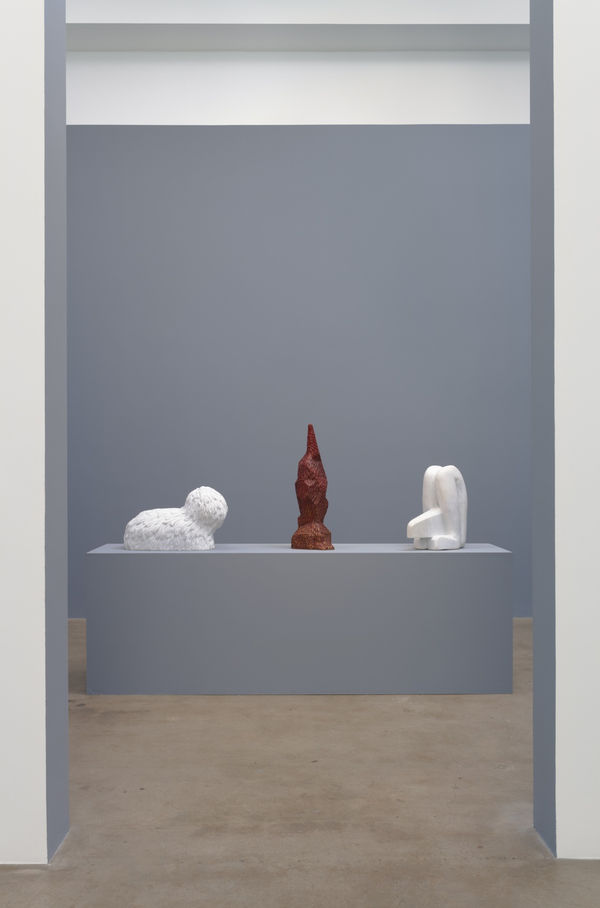Carl D'Alvia: Assembly
A deep lover of art history, Carl D'Alvia works in a sculptural idiom that is decidedly hyper-visual, meticulously handmade, and labor intensive. His naturalistic forms -- marble and bronze birds, dogs, magical characters, and even aged timber -- possess an energetic essence that we recognize and relate to real world analogs.
A solo exhibition by Connecticut-based artist Carl D'Alvia (USA, b. 1965). A selective overview of figurative sculpture, installed here in two gallery spaces, Assembly reunites a body of work created over the past decade. This is D’Alvia’s inaugural exhibition with our gallery and his solo debut in Los Angeles.
Diane Rosenstein Gallery announces Assembly — a solo exhibition by Connecticut-based artist Carl D'Alvia. A selective overview of figurative sculpture, installed here in two gallery spaces, Assembly reunites a body of work created over the past decade. This is D’Alvia’s inaugural exhibition with our gallery and his solo debut in Los Angeles.
Carl D’Alvia is a deep lover of art history, and he works in a sculptural idiom that is decidedly hyper-visual, meticulously handmade, and labor intensive. His naturalistic forms -- marble and bronze birds, dogs, magical characters, and even aged timber -- possess an energetic essence that we recognize and relate to real world analogs. ‘There is a fascination with surfaces and the leveling and transformation of totems old and new…into D’Alvia’s unique Minimalist-inflected Baroque-Surrealist language,’ observed curator and writer Dan Nadel (2016).
We are tempted to stroke Barboncino, 2019, a white marble tabletop work shrouded in elaborately carved fur that obscures any dog features like a nose or tail. ‘Every sculpture lives…carpeted in a dizzying surface,’ writes gallerist Lauren Wittels in her 2022 catalogue essay. Especially Rocket, 2022, a bronze birdlike sculpture that appears to be fully enveloped or clad in leaves rather than feathers. Each vein is detailed adding a graphic, Neo-Baroque energy to the surface. Like Barboncino, we do not see explicitly avian features, talons or a beak, but sense the enfolded wings, and imagine that Rocket is destined to take flight. The manifest energy under the veiled exterior is palpable and at times painful.
D’Alvia explains that he is ‘very compelled by this idea of veiling, and this sort of paradox of giving a surfeit of rich visual information on the exterior, but then in the end obscuring the interior of the piece [and] this led to a major theme in my work, that of contradiction or opposition.’ More than a harmonious object the ideal for Carl D’Alvia is an appropriately contradictory one, energized dialectically by its opposites. Drawing on sources that include megalithic monuments, toy design and the Baroque, the work encapsulates seemingly antithetical motifs such as minimal/ornate, industrial/handmade, comic/tragic, progress/destruction and attraction/repulsion.
Carl D’Alvia (USA, b. 1965) was awarded the Rome Prize for Visual Arts (2012-2013) from the American Academy in Rome, IT; and he received a B.F.A. from the Rhode Island School of Design (1987). Recent solo shows include Hesse Flatow, Nathalie Karg, and Regina Rex, in NY; and in Paris at Galerie Hussenot and Galerie Papillon. D’Alvia’s sculpture was included in exhibitions at Anton Kern Gallery, The Journal Gallery, The RISD Museum, Yerba Buena Art Center, and Feature Inc. The artist lives and works in West Cornwall, CT.




